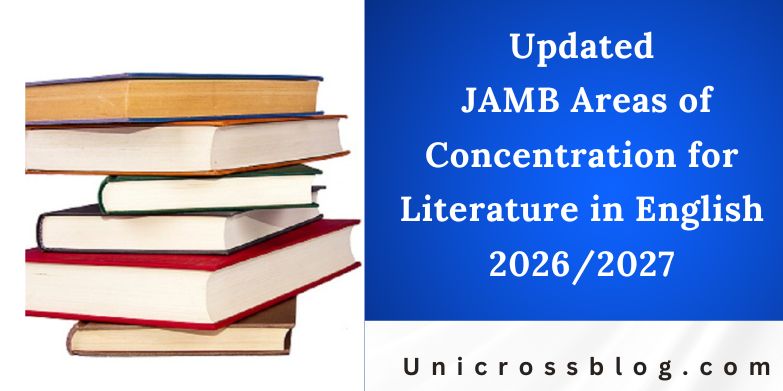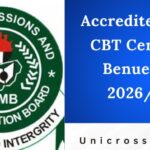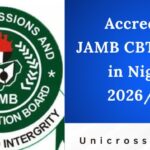JAMB Areas of Concentration for Literature in English: The Joint Admissions and Matriculation Board (JAMB) syllabus for Literature in English is a vital roadmap for candidates preparing for the Unified Tertiary Matriculation Examination (UTME) in 2026/2027. This updated areas of concentration outline key topics, objectives, and skills, aiming to foster a deep appreciation of literary genres, their principles, and their relevance to real-world issues. The syllabus seeks to stimulate interest in Literature in English, enhance understanding of language functions, encourage appreciation of diverse works across cultures, and enable candidates to apply literary knowledge to analyze social, political, and economic events.
For the 2026/2027 session, the syllabus remains consistent with the 2025 version, focusing on drama, prose, poetry, general literary principles, and literary appreciation. Candidates should prioritize understanding dramatic techniques, narrative devices, poetic forms, and critical analysis to excel in the exam, which often includes questions on themes, plots, characters, and unseen passages. Effective preparation involves studying recommended texts and anthologies, practicing past questions, and connecting literary concepts to contemporary Nigerian and global contexts. This detailed guide will help aspirants focus on high-yield topics while avoiding irrelevant materials.

JAMB Areas of Concentration for Literature in English
1. Drama
Drama is a cornerstone of the JAMB Literature in English syllabus, testing candidates’ ability to identify and analyze various dramatic types and techniques. Key types include tragedy, which explores human suffering and downfall often due to a fatal flaw; comedy, focusing on humor and resolution through reconciliation; tragicomedy, blending serious and comic elements; melodrama, characterized by exaggerated emotions and moral conflicts; farce, relying on absurd situations for laughter; and opera, integrating music and singing into the narrative. Candidates must compare and contrast these types, showing how they reflect societal issues like power struggles or cultural norms.
Dramatic techniques are heavily emphasized, including characterization to create believable personas, dialogue to advance plot and reveal traits, flashback to provide backstory, mime for non-verbal expression, costume and music/dance to enhance atmosphere, décor/scenery to set the stage, acts/scenes for structural division, soliloquy/aside for internal monologues, and figures of speech like metaphor and irony for added depth. When analyzing prescribed texts, students should examine themes such as love, betrayal, or colonialism; plot structures including exposition, climax, and denouement; socio-political contexts like post-independence Africa; and settings that shape character actions, whether urban or rural. Objectives include applying these elements to everyday life, such as recognizing tragic flaws in personal decisions, and distinguishing the styles of playwrights like Wole Soyinka’s satirical approach versus John Osborne’s realism. This section prepares candidates to analyze how drama mirrors societal dynamics, fostering critical thinking for the UTME.
2. Prose
Prose encompasses narrative forms and devices, requiring candidates to distinguish between fiction, such as novels, novellas, novelettes, and short stories, which invent plots and characters; non-fiction, including biographies, autobiographies, and memoirs, based on real lives; and faction, blending fact and fiction for hybrid storytelling. Candidates need to categorize texts accurately and analyze components like pacing and moral lessons.
Narrative techniques include point of view, with omniscient/third-person offering broad perspectives or first-person providing intimate insights; characterization distinguishing round (complex) from flat (simple) characters, foils as contrasts, heroes as protagonists, and antiheroes as flawed leads; and language styles varying from formal to colloquial. Textual analysis involves identifying themes like identity or corruption, plot progression from conflict to resolution, temporal/spatial settings such as historical eras or specific locales, and socio-political contexts like gender inequality. Objectives focus on relating prose to real-life situations, determining authors’ styles, such as Buchi Emecheta’s feminist lens, and distinguishing character types to understand motivations. This area encourages candidates to view prose as a tool for social commentary, essential for interpreting novels that address Nigerian experiences like migration or tradition versus modernity.
3. Poetry
Poetry requires knowledge of forms and devices to appreciate its aesthetic and moral value. Types include sonnet for structured love or reflection, ode praising subjects, lyrics expressing personal emotions, elegy mourning the dead, ballad narrating stories in verse, panegyric honoring figures, epic chronicling heroic deeds, and blank verse using unrhymed iambic pentameter. Candidates should compare features, such as the rhythmic flow of ballads versus the introspective depth of sonnets.
Poetic devices cover structure (stanzas and lines), imagery evoking senses, sound elements like rhyme, rhythm, repetition, pun, and onomatopoeia for auditory effects, diction for word choice, and persona as the speaker’s voice. Appreciation involves analyzing thematic preoccupations such as freedom or loss, socio-political relevance like anti-colonial struggles, and style reflecting cultural influences. Objectives include deducing poets’ intents, showing how devices create beauty, appraising poetry’s ethical lessons, and applying insights to life, for instance, using Niyi Osundare’s works to critique leadership. This section sharpens skills in unpacking layered meanings, crucial for questions on unseen poems.
4. General Literary Principles
This section unifies the syllabus by exploring terms and principles applicable across genres. Literary terms include foreshadowing hinting at future events, suspense building tension, theatre as performance space, monologue for extended speeches, dialogue for exchanges, soliloquy for private thoughts, symbolism for deeper meanings, protagonist as central figure, antagonist as opponent, figures of speech like simile, satire mocking vices, and stream of consciousness depicting inner flows. Principles involve direct imitation in plays replicating life, versification in rhythm and meter for drama and poetry, narration of experiences for relatability, and achieving aesthetic value through beauty and truth. Candidates must relate terms to principles, using them appropriately in analysis, such as identifying satire in social critiques. This fosters a holistic understanding of literature’s role in society.
5. Literary Appreciation
Literary appreciation tests candidates’ ability to apply knowledge through unseen passages from drama, prose, or poetry. Candidates must identify devices like irony or alliteration, interpret meanings, and connect to real-life experiences, such as linking a prose extract on poverty to economic disparities. This skill-based area ensures practical comprehension beyond memorization.
Recommended resources include anthologies like Gbemisola’s Naked Soles for African perspectives and Hayward’s Penguin Book of English Verse for classics, alongside dictionaries like Emeaba’s A Dictionary of Literature and Murphy’s Understanding Unseen for foundational analysis. Prescribed poems may include works by Leopold Sedar Senghor (Black Woman), Niyi Osundare (The Leader and the Led), John Donne (The Good Morrow), or Maya Angelou (Caged Bird), focusing on themes of identity and justice.
READ ALSO: Updated JAMB Areas of Concentration for Use of English 2026/2027
FAQs
What are the main objectives of the JAMB Literature in English syllabus?
The objectives include stimulating interest in literature, understanding language functions, appreciating diverse works, and applying literary insights to societal analysis.
Are there specific prescribed texts for drama and prose in 2026/2027?
While the syllabus emphasizes general principles, candidates should study classics like Wole Soyinka’s Lion and the Jewel or Buchi Emecheta’s Second Class Citizen, as texts may carry over unless updated by JAMB.
How can I prepare for unseen passages?
Practice analyzing extracts by identifying devices, themes, and contexts, using past questions to build interpretation skills.
Is the syllabus the same for all universities?
Yes, the JAMB syllabus is standardized for UTME, though universities may have additional requirements post-admission.
What role do poetic devices play in the exam?
They are key for appreciating aesthetic effects and themes, often tested in poetry questions to assess depth of understanding.
How many questions are typically on Literature in English?
The UTME allocates about 40 questions, covering all sections with a mix of objective and interpretive items.







